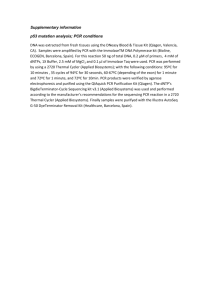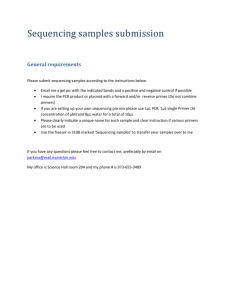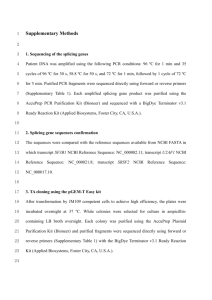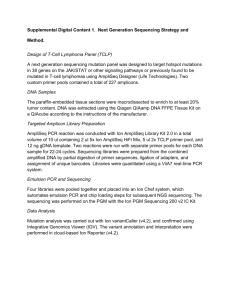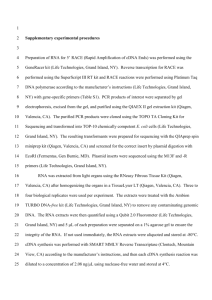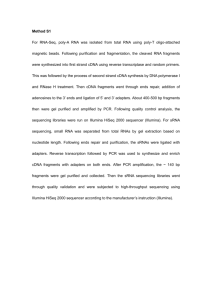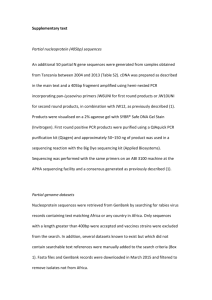Methods Genetic analysis For sequencing 100 ng genomic DNA
advertisement
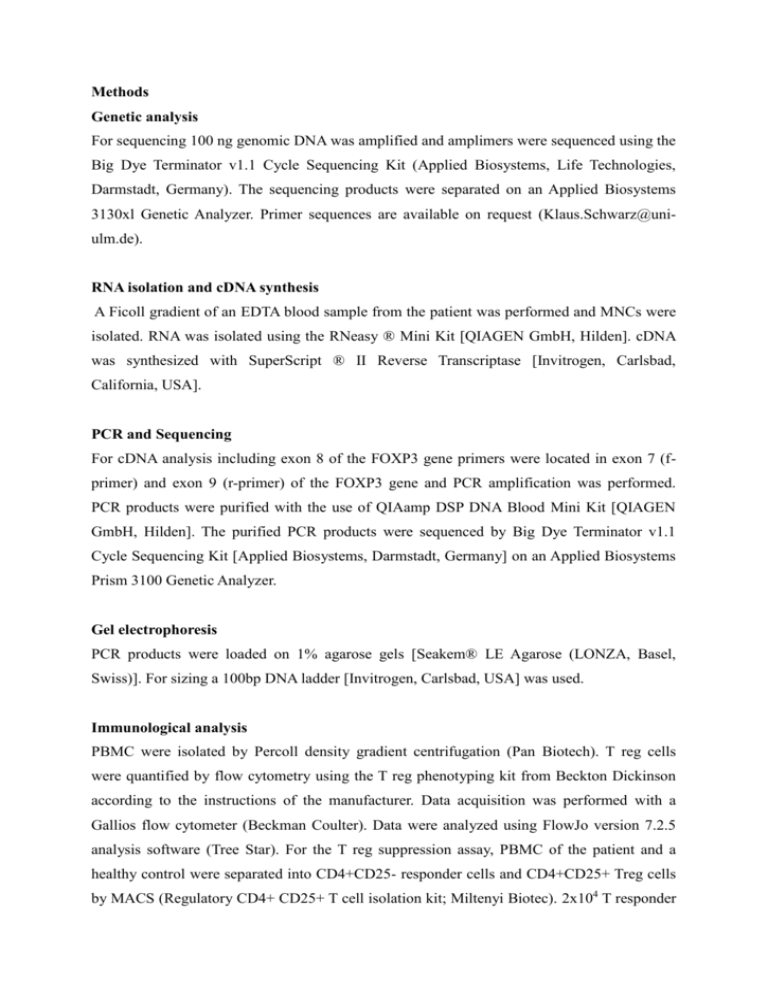
Methods Genetic analysis For sequencing 100 ng genomic DNA was amplified and amplimers were sequenced using the Big Dye Terminator v1.1 Cycle Sequencing Kit (Applied Biosystems, Life Technologies, Darmstadt, Germany). The sequencing products were separated on an Applied Biosystems 3130xl Genetic Analyzer. Primer sequences are available on request (Klaus.Schwarz@uniulm.de). RNA isolation and cDNA synthesis A Ficoll gradient of an EDTA blood sample from the patient was performed and MNCs were isolated. RNA was isolated using the RNeasy ® Mini Kit [QIAGEN GmbH, Hilden]. cDNA was synthesized with SuperScript ® II Reverse Transcriptase [Invitrogen, Carlsbad, California, USA]. PCR and Sequencing For cDNA analysis including exon 8 of the FOXP3 gene primers were located in exon 7 (fprimer) and exon 9 (r-primer) of the FOXP3 gene and PCR amplification was performed. PCR products were purified with the use of QIAamp DSP DNA Blood Mini Kit [QIAGEN GmbH, Hilden]. The purified PCR products were sequenced by Big Dye Terminator v1.1 Cycle Sequencing Kit [Applied Biosystems, Darmstadt, Germany] on an Applied Biosystems Prism 3100 Genetic Analyzer. Gel electrophoresis PCR products were loaded on 1% agarose gels [Seakem® LE Agarose (LONZA, Basel, Swiss)]. For sizing a 100bp DNA ladder [Invitrogen, Carlsbad, USA] was used. Immunological analysis PBMC were isolated by Percoll density gradient centrifugation (Pan Biotech). T reg cells were quantified by flow cytometry using the T reg phenotyping kit from Beckton Dickinson according to the instructions of the manufacturer. Data acquisition was performed with a Gallios flow cytometer (Beckman Coulter). Data were analyzed using FlowJo version 7.2.5 analysis software (Tree Star). For the T reg suppression assay, PBMC of the patient and a healthy control were separated into CD4+CD25- responder cells and CD4+CD25+ Treg cells by MACS (Regulatory CD4+ CD25+ T cell isolation kit; Miltenyi Biotec). 2x104 T responder cells were cocultured for 4 days in IMDM + 10% human AB serum (Lonza) supplemented with 1 mg/ml anti-CD3 (clone Hit3a) either alone, in the presence of 2x104 irradiated allogeneic PBMC (allo) or in the presence of allo cells and 2x104 Treg cells. After 2 days, cells were pulsed with BrdU (1:1000). BrdU incorporation was detected by Europium-labeled anti-BrdU antibody after overnight incubation according to the manufacturer’s protocol (Delfia® cell proliferation kit, Perkin Elmer). Eu-fluorescence was measured with an EnVision reader (Perkin Elmer). Mean fluorescence of triplicate values were normalized to the fluorescence of a standard Europium solution (Perkin Elmer).
